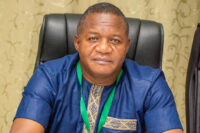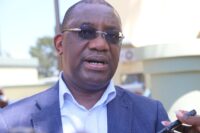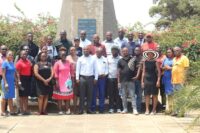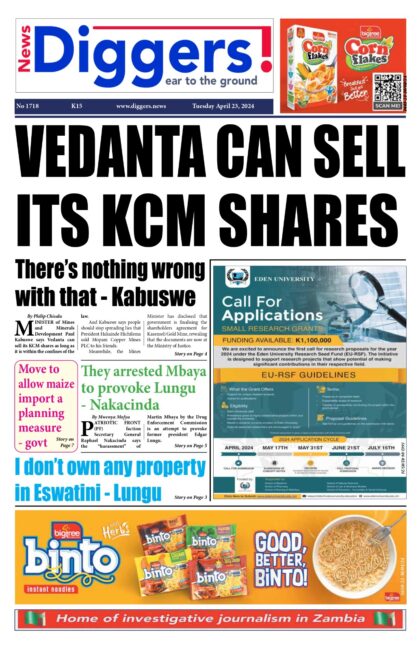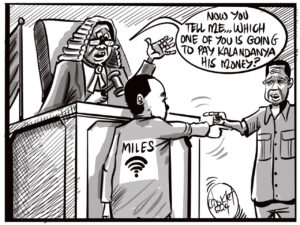We warned last year that one of the key reasons why President Edgar Lungu’s immunity will be removed is because of the decisions that the Industrial Development Corporation is making under him as Board Chairman. Our argument point on this matter is that since the Head of State is running the Industrial Development Corporation, then there is no oversight institution, let alone individual, to question its dealings; as such all sorts of criminality is going unchallenged.
Since the President will have no deniability, it will be him to explain why he allowed millions of Zambian taxpayer dollars to go to waste through bogus investments. What is worse is that, almost all the investment ventures that the Industrial Development Corporation is making are being done in the interest of President Lungu’s friends and not the citizens of this country. Through these investments, the IDC is becoming Zambia’s fastest growing liability; yet the people are being fooled by consistent propaganda statements suggesting that the institution is actually flourishing.
In a keynote address on Saturday 27th October 2018 at the 2nd IDC annual Group Conference, Finance Minister Margaret Mwanakatwe stated that the IDC consolidated balance sheet valued at US$5.6 billion represents the wealth of the taxpayers of this country. That sounds like great economic news for the country, but let’s look back at the policy direction that IDC was tasked to pursue and compare with where it is today.
During the official opening of the first session of the 12th national assembly in September 2016, President Edgar Lungu stated in his speech that: “In the next five years, my government will through the IDC, target to create a total of one million jobs in the growth areas of manufacturing, agriculture, infrastructure, tourism and information and communications technology (ICT) in line with the PF’s Manifesto pledge on industrialization.”
When one reads the President’s directive to IDC compared to the corporations’ operations, it’s clear that something is not right with IDC’s investment agenda. Why do we say this? The IDC Group consists of at least 25 State Owned Enterprises, among them: NCZ, ZESCO, Times of Zambia, Mpulungu Harbour Corporation, Mukuba Hotel, Mulungushi Textiles, MOFED London, MOFED Tanzania, Mupepetwe Development Company and Zamtel.
A majority of these companies are in dire need of capital. Employees at these institutions are being laid off because the companies can no longer sustain the desired workforce. In other words, instead of growing, these companies are scaling down their operations while some are literally folding and killing employment. In the face of this, IDC is busy buying loss making companies from the private sector friends of the President.
Why did IDC purchase 90 percent shares in Zambeef’s Zampalm for a cash consideration of US$16 million leaving its own baby Times of Zambia crying on its back? How is IDC finding it profitable to acquiring 76 per cent of shares in Superior Milling Company Limited when it is failing to keep Nitrogen Chemicals of Zambia afloat?
Why has IDC prioritized acquiring loss making private companies at the expense of turning around their existing State Owned Enterprises? What is the justification for their investment strategy? In our view, the people running IDC seem to be recreating INDECO of the UNIP era, but that was not the plan.
The Industrial Development Corporation was designed to be a self-financing national development finance institution whose primary objectives were to contribute to the generation of income, sustainable economic growth for the country and empowerment to citizens through real job creation. IDC would have achieved this by promoting entrepreneurship through the building of competitive industries and enterprises based on sound business principles.
But the IDC of President Lungu is not after industrialization, it is after corrupt investment deals which are not backed by sound economic principals. It is no wonder they moved their offices away from the Lusaka South Multi-Facility Economic Zone where they are supposed to build industries, to a posh neighboughood along Independence Avenue – in proximity with State House.
We challenge the Minister of Finance to inform the people of Zambia how much dividends have been declared to IDC to date and whether the IDC is using dividends paid to finance its acquisition of loss making companies from the private sector? How are they identifying which companies to invest in? Who are the board members and directors of these companies and who conducts due diligence over proposed investments?
Once again, we wish to advise President Lungu and his Minister of Finance to ensure that the affairs of this US$5.6 billion Corporation called IDC are guided by commercial considerations for the purposes of achieving the highest return on investment for the people of Zambia.
The Minister of Finance should seriously address corporate governance issues of the IDC if reforms with its subsidiaries are to achieve success. The President and other Ministers should not be part of the IDC Board. Furthermore, the appointment of senior executives at IDC should be on merit and not based on patronage as the case is now.
The Minister of Finance must know that job creation is a key performance indicator of the IDC.
Already, it is very clear that the IDC has no capacity to execute the Presidential directive to create one million jobs, but we are concerned that beyond this failure, someone’s son will not enjoy his retirement. This sounds like a joke today because the people sending this advice are young journalists who probably appear as tiny ants in the eyes of the Great Leader of this Great Country, but a time will come when Mr Lungu will remember our warning.




